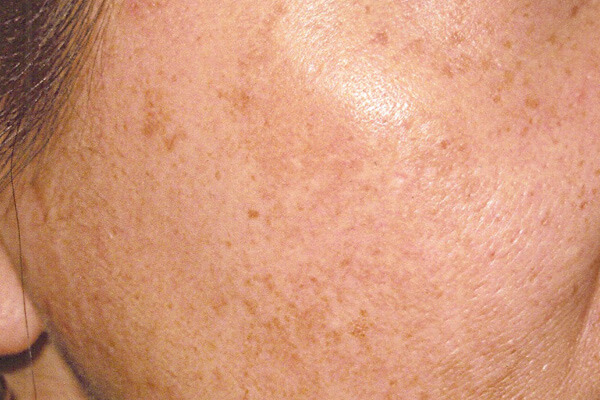Pigmentation
What is it?
Pigmentation is a common, usually harmless condition in which patches of skin become darker in colour than the normal surrounding skin. This darkening occurs when an excess of melanin, the brown pigment that produces normal skin colour, forms deposits in the skin. Pigmentation can affect the skin colour of people of any race.
What are the causes?
Hyper pigmentation may either be due to increased melanin deposition in the epidermis or dermis. There are a variety of causes depending on each individual’s condition. Most common causes are:
Melasma – Seen as brown patches on the face, more commonly seen in females. It occurs due to hormonal changes in the body. The pigmentation increases with sun exposure.
Peri-orbital melanosis – Also known as “dark circles”. It may be hereditary, due to stress or eye strain.
Freckles and Lentigenes – These are tiny black spots on the face and are genetic in origin.
Photomelanosis – This is increased pigmentation due to sun exposure. The pigmentation occurs on exposed skin, commonly on the face, neck and the back. The pigmentation may be patchy.
Sun burn – A condition commonly encountered in fair skinned people due to excessive sun exposure.
Post inflammatory hyper pigmentation – It may be seen after healing has occurred from skin conditions like acne, eczemas, contact dermatitis etc.
Certain Cosmetics – Pigmentation may occur from some cosmetics, especially those containing fragrances.
How can it be prevented?
Some types of hyperpigmentation are part of your genetic makeup, similar to developing freckles or age spots, and are therefore hard to prevent. Things you can do to do help are:
Stay out of direct sun. Sunlight is the number one cause of hyperpigmentation, but you can prevent dark spots from forming by using a broad-spectrum sunscreen of at least SPF 30 and high grade antioxidants whenever you expect sun exposure.
Take extra precaution when you are pregnant. Melasma, also called the mask of pregnancy, is a form of hyperpigmentation that typically affects the face and can be exacerbated by sun exposure.
Inform your skin specialist of any drugs you are taking, including birth-control pills, psychoactive drugs, diuretics, painkillers and other medications. These could be the cause of your hyperpigmentation, and changing the dosage or drug protocol may treat and prevent the condition.
What are the treatments?
Pigmentation can be treated with topical creams and serums. Excellent treatment options include :-
• Fraxel laser
• Intense Pulse Light Treatment (IPL)
• Fusion mesotherapy
• pHformula skin resurfacing

Get in touch to book an appointment
